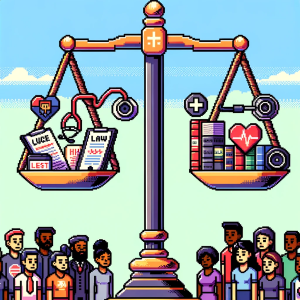
The Potential of Early Childhood Education: A Gateway to Health and Equity
This is a cross-post with our sister site, This Week in School Psychology. If you have a particular interest in child development, mental health, and educational support, head on over there and check it out!
A recent review in the Annual Reviews of Public Health, titled Early Childhood Education: Health, Equity, and Economics provides crucial insights into the impact of early childhood education (ECE) on children’s future. It specifically highlights its significance for children from low-income and minority backgrounds. This article is a must-read for school psychologists and those concerned about school mental health, as it sheds light on how ECE shaping young minds and lives.
ECE’s Role in Bridging the Gap
The article reveals that ECE, particularly for three- and four-year-olds, plays a pivotal role in ensuring school readiness, encompassing both cognitive and socioemotional skills. This is particularly crucial for children who come from resource-deprived backgrounds, as ECE can significantly close the learning gaps that start to appear as early as two years of age.
Health, Cognitive, and Socioemotional Benefits
ECE’s benefits extend beyond academic readiness. It encompasses improvements in health outcomes and socioemotional development. The review emphasizes how ECE programs, through various activities and interventions, can foster healthier lifestyles and social behaviors among children. This is critical information for professionals concerned about the mental health and overall well-being of students.
Economic Perspectives and Equity
A particularly interesting aspect of the review is its discussion on the economic returns of investing in ECE. The long-term economic benefits, as highlighted in the article, are substantial, especially when considering the improved life trajectories of children who attend these programs. This has significant implications for policy-making and resource allocation in education.
Challenges and Considerations
However, the review also cautions that ECE is not a panacea. Its effectiveness depends on several factors, including the alignment with subsequent education and the conditions at home and in the community. For school psychologists and related professionals, this points to the need for a holistic approach that considers the child’s entire ecosystem.
Bonus Paragraph! For Public Health Practitioners.
For public health practitioners, the insights from the review are particularly impactful. It underscores the vital role early childhood education (ECE) plays in shaping long-term health outcomes. The early years are critical for setting the foundation for lifelong health behaviors and attitudes. ECE programs, which often incorporate aspects of physical health, nutrition, and social skills, can be instrumental in establishing these healthy habits early on.
Moreover, the review highlights the socio-emotional benefits of ECE, which are crucial in preventing mental health issues later in life. This aligns with public health goals of reducing health disparities and improving overall community health. Understanding these connections, public health professionals are in a unique position to advocate for and support policies that expand access to quality ECE, particularly in underserved communities. By doing so, they can play a significant role in promoting not just education equity but also long-term public health benefits.
Closing Thoughts
The review is an essential read for professionals in the field of school psychology and mental health. It not only underscores the value of ECE but also highlights the complexities and considerations that must be taken into account to maximize its benefits. As we strive to create equitable educational opportunities and support the mental health of our young learners, insights from this review are invaluable.
Join the Movement of Health Innovators – Subscribe for Weekly Insights!
Step into the forefront of public health innovation with ‘This Week in Public Health.’ Every edition brings you closer to the latest developments in research, community health, and advocacy. It’s more than a newsletter – it’s your resource for becoming an informed and active participant in the health community. Subscribe for free and join a network of individuals dedicated to making a lasting impact in public health!



